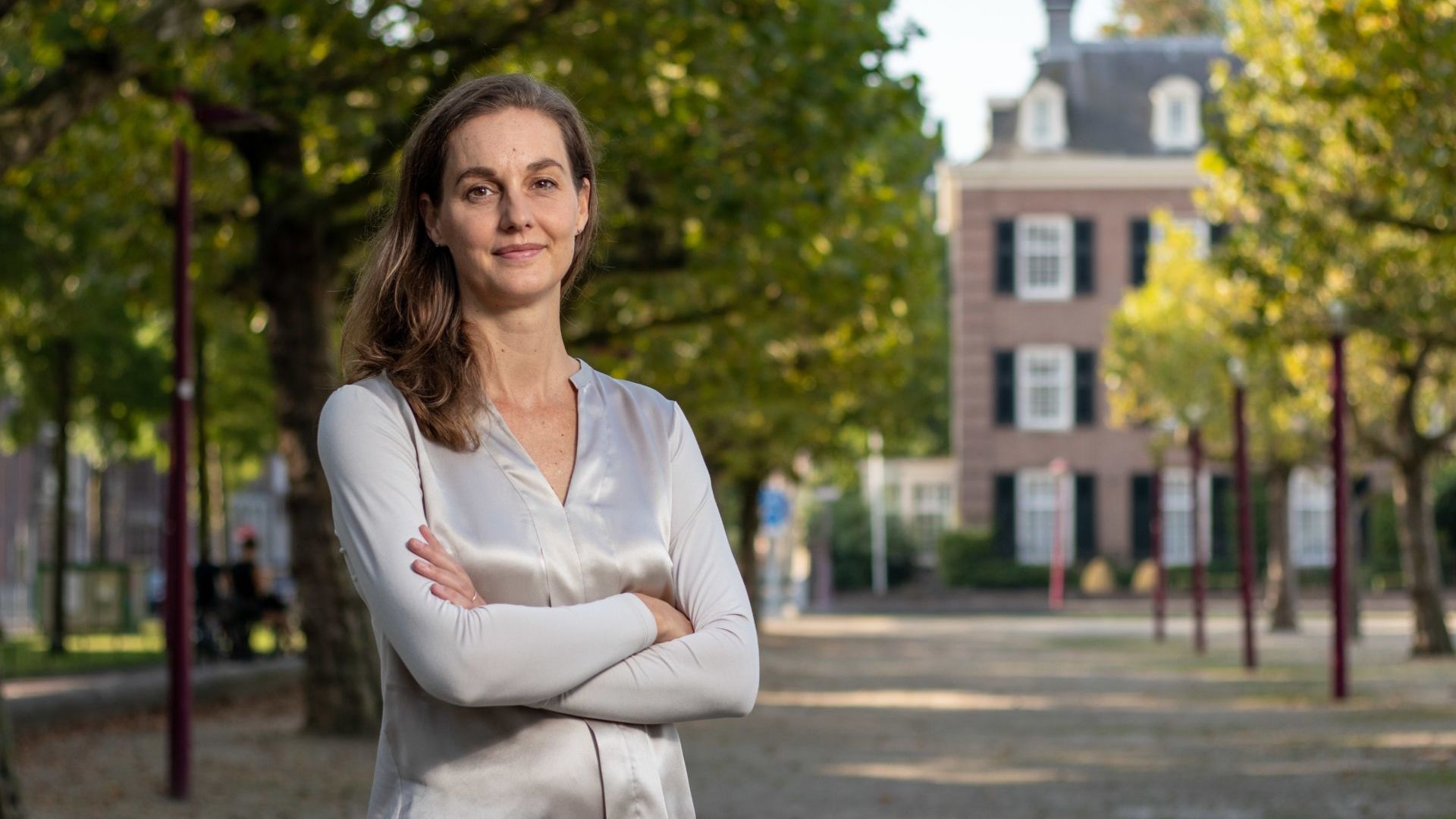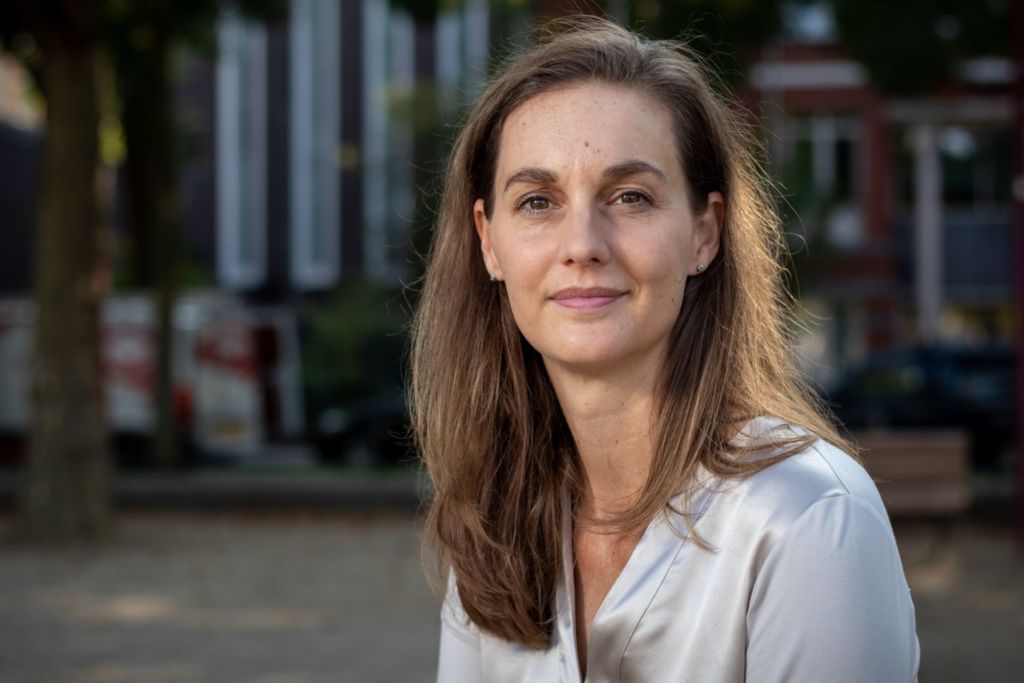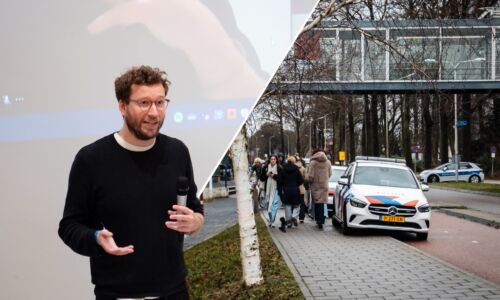New book on the aftermath of 9/11: ‘The war on terror has only led to more terrorism’
-
 Photo: Rein Wieringa
Photo: Rein Wieringa
After 9/11, the war on terror brought death and destruction. And its main objective, stopping terrorism? Nothing more than an illusion, according to CICAM lecturer Willemijn Verkoren. As she states in her new book ‘Out of the Terror Spiral.’ ‘It is impossible to create a democracy using bombs and grenades.’
The events of September 11th, 2001, are etched in the collective memory. Besides the death toll, the attacks also came with a massive fear of future acts of terrorism. Using the motto ‘You are either with us or against us’, United States president George W. Bush started his war on terror by launching invasions of Afghanistan and Iraq. The Netherlands joined international missions of the war effort and enforced new regulations domestically.
Radicalisation
All of this with the goal of stopping terrorism. But if one takes stock, they will find that the war on terror hasn’t stopped terrorism at all, according to Willemijn Verkoren, associate professor at the Centre for International Conflict – Analysis & Management at Radboud University. In her new book Uit de terreurspiraal: een nieuw perspectief op terrorisme (English translation: Out of the Terror Spiral: A New Perspective on Terrorism), which was released this week, she argues quite the opposite: the series of wars has led to more terrorism and radicalisation, not less.
Verkoren herself almost became a victim of the war on terror. Back in 2012 she narrowly escaped a terrorist attack during a scientific conference in Iraq. En route to a lunch appointment, an IED exploded near her convoy. Three people died, eleven were wounded. Verkoren and her colleague Henk van Houtum were unscathed.
According to Verkoren, the attack is etched in her memory. ‘You won’t soon forget it if you experience something like that.’ However, she has managed to process the events. ‘Fortunately, I have not been affected psychologically by the troubles I have seen in conflict zones.’
She considers it somewhat ironic that she became the victim of an attack while at a conference concerning safety, in a country that was under occupation in order to stop terrorism. Ironic, but not surprising. ‘Before 2003, there were hardly any terrorist attacks in Iraq, but ever since the American invasion those attacks are a daily occurrence. This is especially troublesome if you consider that the invasion was launched under the pretence of stopping terrorism.’
Just last month, the United States and its allies withdrew from Afghanistan. This meant an end to a twenty-year war that cost the West thousands of deaths and billions of euros. Was it worth it?
‘The West has definitely made some progress in Afghanistan. For instance, women are now allowed to get an education. I just don’t think that this was worth all the lives and money lost. In the end, the invasion force did not accomplish what it set out to do.’
‘They were unsuccessful in stopping terrorism.’
‘You should realise that America had two goals in Afghanistan and Iraq. The invasion started as a means of quelling terrorism. Once that was underway, spreading democracy in the region became a second goal. This was doomed to fail: it is impossible to create a democracy using bombs and grenades. The first goal failed as well: they were unsuccessful in stopping terrorism. A few terrorist leaders were killed or apprehended, but at the same time we saw new terrorist groups emerge. I often compare it to fighting the hydra. You can chop off a few heads, but new ones keep taking their place.’
Becoming a terrorist does not sound especially appealing. Why do people keep joining terrorist groups?
‘To answer that question, you need to look at the motivations of the terrorists themselves. The harsh Western intervention has caused a lot of bad blood among many locals. They feel forgotten and unsafe in their own country. A good example of this which may be less familiar to the public at large is the drone war being fought in Yemen and Pakistan. In areas that are controlled by Muslim extremists, there are military drones constantly buzzing around. The local population knows that those can launch missiles at any time.’
‘And those explosives don’t just hit terrorists. Civilian casualties and all associated traumas are tragically commonplace. This leads to great feelings of disgust for the Western world, particularly among young males; this makes it very fertile ground for terrorist organisations. Additionally, adolescent males in these areas often have very few opportunities to develop themselves.’
Does the ideology of Islam play a part?
‘It is a very influential image that terrorists nowadays are all religious fanatics intent on the complete destruction of our society. However, in my book I try to refute this image. Of course, it is a fact that Islam plays a part, but it is not the cause of the attacks.’
‘What often drives terrorists is outrage over political developments like the American invasions, combined with personal problems such as family issues. These youths often feel displaced; they are looking for meaning and somewhere to belong. They often find this meaning in the Jihad, however that does not mean they are seasoned Muslims. In fact, research has shown that Muslim terrorists often know shockingly little of the Quran.’
Mass Hysteria
The Middle East is not the only theatre in the war on terror. For fear of so-called ‘polder terrorists’, the Dutch government launched a slew of new measures after September 11th. This was fuelled by the murder of Theo van Gogh, as well as the arrests of several members of the terrorist Hofstad group. Some of the measures are controversial; for instance, civilians are being spied on through mass surveillance efforts, and court approval is no longer necessary for a house search if there are suspicions of terrorist activity.
This is all in stark contrast to the wave of extreme leftist terrorism of the seventies and eighties, when groups such as the Red Youth and the Revolutionary Anti-Racist Action (RaRa) were stirring up trouble in the Netherlands. ‘That wave of terrorism was much deadlier in Europe than the present wave, but you wouldn’t know from all the disquiet nowadays. At the time, the Dutch government decided to pay those groups as little attention as possible and refrained from taking any extraordinary measures. This really took the wind out of their sails.’
‘The terrorists from back then agree. According to them, the lukewarm government response quickly took the fun out of it. This contrasts sharply with Germany, for instance, where the government took a hard-line stance. This caused terror groups like the Rote Armee Fraktion to radicalise, causing mass hysteria in society.’

After 9/11, the Dutch anti-terrorism policies changed completely. What were the results?
‘Unfortunately, most of the new government measures were ineffective, as best we can tell. The biggest issue is that, through mass surveillance, the government is keeping an eye on more and more people that are not a threat now but could potentially be one in the future. The wider you cast that kind of net, the more likely it becomes that you look at people with no malicious intent. As far as we know this method of intelligence gathering barely gives worthwhile results, because the intelligence services are drowning in all the data.’
‘At the same time, these measures are making a lot of people angry, particularly among the Muslim community. They feel that Muslims are often unjustly under surveillance or marked as suspected terrorists. They also feel that they are not considered truly Dutch. All of these factors pave the way for radicalisation; ‘If your society won’t accept me, I won’t accept your society’- that sort of thing.’
Has the antiterrorism policy caused there to be more or less terrorism in the Netherlands?
‘It is hard to tell with any certainty. If you look at the motives of terrorists in the West, you can see that for some of them the antiterrorism policy itself is a motivation for committing acts of terrorism. In that sense the policy contributes to radicalisation.’
‘To do nothing is not an option’
‘However, to do nothing is not an option either. We don’t know how many terrorist attacks have been prevented, because the intelligence services don’t disclose that information. Added to that is the fact that some of the measures do have a positive effect. For example, good old investigative work based on hard evidence is the most effective; it’s a good thing that more manpower has been made available for this kind of work.’
If politicians know that the hard-line approach is counterproductive, why do they keep using it?
‘Well, if there ever is an attack no politician wants to be blamed for not doing enough. That is why they would rather take too many measures than too few. This is reinforced by society. A lot of civilians are incredibly fearful of terrorism, and as such they demand stricter measures. These in turn increase the fear of terrorism, which reinforces a dynamic that can barely be stopped.’
How can we break this vicious cycle?
‘That will require a lot of courage from both politicians and society as a whole. The most important thing is not to give in to our fears, but to put terrorism in perspective. We need to realise that taking strict measures will only play into the terrorists’ hands. After all, that means they get the attention they wanted, and it allows them to paint the government as oppressive. That is why we need to keep a clear head; we need to do what the Netherlands did back in the seventies.’
‘When dealing with terrorists you should only focus on those who are actually violent or threatening violence; I refer to this as the surgical approach. You don’t want to pursue people who just have radical ideas, because being a radical is perfectly legal in and of itself. Additionally, keeping tabs on everyone associated with terrorists is pointless, it only upsets people.’
You have experienced a terrorist attack once before. Are you afraid of becoming a victim again?
‘No, I’m not worried about that. It helps that, as a scientist, I am familiar with the statistics of victims of terrorism. In the West, people are as likely to die from lighting strikes or in the bath as they are from terrorist attacks. With those numbers in the back of my mind, I’m not worried.’
Willemijn Verkoren will hold a lecture about her new book in Theatre Hall C on Tuesday, September 28th. Afterwards, she will engage political philosopher Evert van der Zweerde in a discussion. Can society escape the violent spiral of terrorism and counterterrorism? More info can be found at Radboud Reflects. The lecture will be in Dutch.



